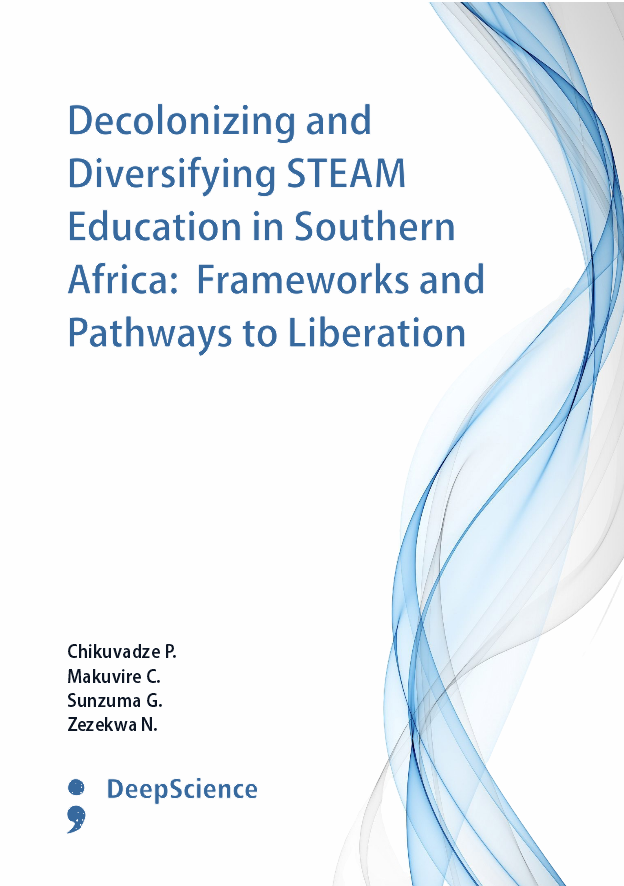Decolonizing and Diversifying STEAM Education in Southern Africa: Frameworks and Pathways to Liberation
Keywords:
STEAM Education , Indigenous Knowledge Systems , Culturally Responsive Pedagogy, Educational Equity, Experiential Learning, Critical Pedagogy, Curriculum TransformationSynopsis
In recent decades, Science, Technology, Engineering, the Arts, and Mathematics (STEAM) education has been heralded globally as a driver of innovation, economic growth, and societal advancement. Yet in Southern Africa and in many parts of the Global South STEAM education remains deeply entangled with colonial legacies, Western-centric frameworks, and structural inequities that marginalize indigenous knowledge systems, local histories, and diverse identities. This book, Frameworks and Pathways to Liberation, is an urgent response to the enduring problem.
This book represents the first of a two-part journey that interrogates, disrupts, and reimagines STEAM education from the perspective of the oppressed. It begins by laying a theoretical and philosophical foundation for a decolonial approach to STEAM learning one that is inclusive, ethical, and rooted in the lived realities of Southern African communities. By foregrounding Indigenous Knowledge Systems, culturally responsive pedagogies, gender inclusivity, and the social responsibilities of scientists and educators, the chapters herein challenge the assumption that science and technology are neutral or universally beneficial. At its core, this book asks: Whose knowledge counts in the classroom? Whose voices are heard in the lab? And how can education serve as a tool for liberation rather than domination?
The first chapter offers a conceptual framework for understanding STEAM education as a transformative force when it is critically examined and restructured. Chapter Two builds upon this by exploring decolonization strategies that elevate indigenous epistemologies and question the dominance of Eurocentric curricula. The third chapter turns to ethics, highlighting the profound responsibilities that come with power in scientific practice and education. Chapter Four illustrates how STEAM can be a vehicle for social justice, providing case studies that inspire and instruct. Finally, Chapter Five focuses on gender, addressing how identity and access are shaped by social and cultural dynamics that must be dismantled for true equity to emerge.
This book is intended for educators, curriculum designers, policymakers, researchers, and activists committed to rethinking what STEAM education can be in contexts of historical oppression and ongoing struggle. It invites readers to consider not just what is taught, but how, why, and for whom. Frameworks and Pathways to Liberation is both a critique and a call for action. It is a recognition that to change the future of science and technology in Southern Africa, we must first transform the way they are taught today.













